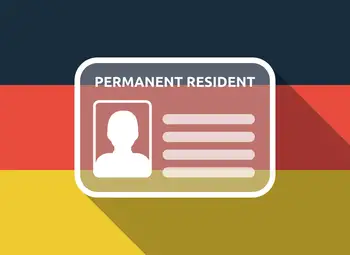
British Citizens in Germany after Brexit
Brexit – it's been a hot topic for what seems like a lifetime now, but it can still seem very unclear about the impacts that Brexit will have on the ways by which we live and work. With this in mind, for British citizens living in foreign countries, the topic undoubtedly brings up many key questions, such as how the Brexit transition period will impact their working rights and residency rights, as well as the overall general effect of British citizens living and working in Germany.
With this in mind, it's crucial to consider some of the different factors that may change following the Brexit transition period, which concluded on December 31st, 2020. As such, today, we've outlined some of the key things you need to know about how the transition period and the future after Brexit will look for British citizens living and working in Germany.
Living in Germany as a British Citizen: What You Should Know for your move in 2022
So, you're planning removals to Germany after Brexit in 2022 as a British citizen – but you're not sure how the Brexit proceedings will have changed things? If this is something you have experienced, don't worry; we've outlined some key guidance as follows to help ensure your move to Germany doesn't come with any unexpected headaches. On our website we also provide most-recent information on changes affecting expats living in Germany.
Travel
 First of all, let's consider the new restrictions and rules regarding travel to Germany as a British citizen following the Brexit restrictions. Under the new rules, those looking to travel to Germany will need to travel as a third-country national, which unfortunately requires the most specific control procedures and more time at customs. In line with current guidance, you will also need to check the latest Coronavirus restrictions before you travel to ensure you are in line with these. While travelling to Germany you should check what is the best way to money transfer.
First of all, let's consider the new restrictions and rules regarding travel to Germany as a British citizen following the Brexit restrictions. Under the new rules, those looking to travel to Germany will need to travel as a third-country national, which unfortunately requires the most specific control procedures and more time at customs. In line with current guidance, you will also need to check the latest Coronavirus restrictions before you travel to ensure you are in line with these. While travelling to Germany you should check what is the best way to money transfer.
Nevertheless, as part of the negotiations, British citizens are allowed to travel without a visa to the Schengen region, allowing you to stay for 90 days within a 180-day period in the region without needing to obtain full residency through a Visa.
From the other perspective, if you are looking to re-enter Britain from Germany, you will need to ensure you have a valid passport for the duration of your stay in the UK; this was implemented on September 30th, 2021, prior to which point a German ID card was suitable alone.
Driving
At this point, you've gotten access to travel into Germany – so, it's now a good time to consider how driving will change once you've traveled to Germany.
The good news is: if you're only visiting Germany for a short period of time, you won't need to apply for a separate driving license so long as you have a legal, up-to-date driving license within the UK already. If so, you'll just need to ensure that your car has a British GB sticker and that you've brought your ID (you'll still need your passport to travel anyway, so this shouldn't be hard), your motor insurance certificate, and your V5 registration with you for the trip.
However, suppose you are intending to live in Germany rather than just visiting. In such a scenario, you will need to apply for a German driving license within six months of obtaining German residency or otherwise take a German driving test (and pass) to obtain your German driving license. Fortunately, applying for a German driving license is very simple; contact the driving license authority for your region ("Fahrerlaubnisbehörde") and pay the fee. They may also request a notarised translation for your existing UK driving license.
Residency
 Now that the UK is no longer an EU member state, things are a little trickier when it comes to applying for residency in Germany, but that's not to say that they are difficult! If you lived in Germany before the introduction of the transition period, you will be covered under the withdrawal agreement and so will continue to be entitled to live and work in Germany.
Now that the UK is no longer an EU member state, things are a little trickier when it comes to applying for residency in Germany, but that's not to say that they are difficult! If you lived in Germany before the introduction of the transition period, you will be covered under the withdrawal agreement and so will continue to be entitled to live and work in Germany.
However, if you are looking to move to Germany after the transition period was implemented, you will face a little more difficulty. Since you will now be considered a "third-country national" and you will need to go through the aforementioned checks at the Schengen border. And, while you won't need a Visa to enter Schengen if you only intend to stay for 90 days out of a 180-day period, if you wish to conduct economic transactions or otherwise wish to stay longer, you will need to apply for a residence permit.
Fortunately, residence permits aren't a major headache to obtain; simply head to Germany (thanks to the Visa-free travel allowance) and head to your local immigration office at the first possible opportunity, where you will be able to obtain a residency permit to live in Germany. Within two weeks of arriving in Germany, it's also crucial that you register at the local Citizens' Office.
Taking Pets with You
If you wish to take your pet with you to Germany and they already have a passport issued by an EU member state, this process will be easy. However, if they have a British passport, you'll need to look at other options to bring your beloved pet with you; your vet should be able to help with this matter.
Conclusion
While things may become a little more difficult following Brexit for British citizens looking to move to Germany, it's nevertheless critical to consider that it's still entirely possible. As such, if you still have your heart set on making a move to Germany, please don't hesitate to reach out to our team for your quick and easy UK to Germany removals quote; it only takes a matter of moments, and we can help take the hassle out of moving to Germany even as we look to the future. If you are wondering how to move safely during Covid-19, please contact our team so we can provide detailed information on our operations during pandemic.
